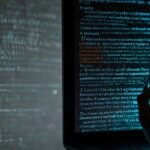Imagine typing your own name into a search engine and finding… nothing. No social media profiles, no news mentions, no digital footprint whatsoever. In our hyper-connected world, where oversharing often feels like the default, this level of invisibility seems almost impossible. Yet, for individuals like Jocelyn Vanchiasong, this is the reality. This name emerges in search queries, a whisper in the digital void, but yields no verifiable public persona. Why does this happen? And what does it tell us about privacy, identity, and control in the digital age? Let’s unravel the mystery.
This exploration isn’t just about one name. It’s a lens into the powerful choice of remaining unseen online. Whether Jocelyn Vanchiasong represents a fiercely private individual, a carefully guarded pseudonym, or even a simple typo, their absence speaks volumes. We’ll navigate the reasons behind such digital anonymity, explore the tools people use to achieve it, and discuss the surprising benefits of stepping back from the online spotlight. Ultimately, this is about reclaiming control in an era where personal data is constantly harvested.
Why Jocelyn Vanchiasong Might Be Invisible: The Anatomy of Digital Anonymity
The absence of information about Jocelyn Vanchiasong isn’t accidental. It’s often the result of deliberate choices or specific circumstances. Understanding these reasons demystifies the phenomenon:
- The Conscious Choice of Privacy:
- Opting Out: Some individuals fundamentally reject the pressure to have an online presence. They value their offline life and deliberately avoid social media, professional networking sites, and public forums.
- Professional Boundaries: Certain professions (like therapists, judges, or high-security roles) demand extreme discretion. Individuals might legally or ethically need to minimize their digital footprint.
- Safety Concerns: Stalking, harassment, or threats can force people to erase their online identities or never create one to begin with. Privacy becomes a security necessity.
- Cultural or Personal Values: Deeply held beliefs about data ownership, corporate surveillance, or simply a desire for quiet can fuel the choice for anonymity.
- The Shield of Commonality:
- Name Variations: “Jocelyn Vanchiasong” could be a unique spelling, a combination of common names, or even a pseudonym itself. This makes pinpointing the specific individual incredibly difficult without more context.
- Common Names: While “Jocelyn Vanchiasong” appears distinctive, its components might be more common in specific regions or communities, diluting search results.
- The Possibility of Error:
- Typographical Mistakes: It’s plausible that the name originated from a misspelling of a different, perhaps more recognizable name (e.g., Vanessa, Jocelyne, a different surname).
- Mishearing/Misremembering: Someone might have misheard the name initially, leading to an incorrect search term taking on a life of its own.
- Fictional or Placeholder Use: The name could have been used temporarily in a private context (like a username in a closed group) or as a fictional character in unpublished work.
- The New Reality of Data Scraping Limitations:
- Stricter Privacy Laws: Regulations like GDPR (Europe) and CCPA (California) make it harder for data brokers to indiscriminately collect and publish personal information without consent. This protects privacy but also limits public records visibility.
- Reduced Data Broker Dominance: While still a concern, the unchecked proliferation of personal data on easily accessible broker sites is slowly being reined in, making it harder to find information without explicit consent or a legal reason.
How to Become a “Jocelyn Vanchiasong”: Practical Steps for Digital Privacy
Inspired by the anonymity of Jocelyn Vanchiasong? Achieving significant digital privacy requires conscious effort. Here’s a roadmap:
Phase 1: Audit & Erase (The Digital Cleanup)
- Google Yourself: Thoroughly search variations of your name, usernames, and old email addresses. See what’s out there.
- Delete Old Accounts: Hunt down and deactivate social media profiles, forum accounts, old blogs, or shopping site accounts you no longer use. Tools like “Deseat.me” (use cautiously!) can help find some.
- Request Removal from Data Brokers: This is time-consuming but crucial. Identify major data broker sites (Whitepages, Spokeo, BeenVerified, etc.), find your listing, and follow their opt-out procedures. Services like DeleteMe or OneRep can automate this (for a fee).
- Remove Personal Info from Websites: Contact website owners (e.g., alumni directories, old employer sites) to request removal of your personal details.
Phase 2: Fortify & Protect (Locking Down Your Presence)
- Maximize Privacy Settings: On essential social media (if you keep any), set everything to the strictest privacy level. Limit profile visibility, photo tagging, and search engine indexing.
- Use Aliases & Unique Emails: For non-essential accounts (shopping, newsletters, forums), use a pseudonym or initials and dedicated email addresses not tied to your real name.
- Employ Strong, Unique Passwords & 2FA: Prevent account takeovers that could expose information. Use a reputable password manager.
- Be Cautious with Sharing: Think twice before posting personal details (location, birthdate, family info), even in “private” groups. Assume anything online can become public.
- Consider Privacy-Focused Tools: Use search engines like DuckDuckGo, browsers like Brave or Firefox with privacy extensions (uBlock Origin, Privacy Badger), and messaging apps like Signal.
Phase 3: Maintain Vigilance (Ongoing Protection)
- Regular Re-Audits: Set reminders to search your name and check data broker sites periodically; new listings can appear.
- Minimize New Footprints: Be highly selective about creating new online accounts. Ask if it’s truly necessary.
- Educate Family/Friends: Politely ask close contacts not to tag you in photos or share your personal details online without permission.
Comparing Online Visibility Levels
| Visibility Level | Description | Example Scenario | Effort Required |
|---|---|---|---|
| High (Wide Open) | Extensive public profiles, news mentions, easy data broker finds. | Influencer, Public Official, Business Leader | Low (Default) |
| Medium (Managed) | Professional profiles (LinkedIn), limited social media, some broker data. | Most Professionals, Active Social Users | Moderate |
| Low (Private) | Minimal public info. Maybe a locked-down LinkedIn, hard-to-find broker data. | Privacy-Conscious Individuals, Some Professions | High |
| “Jocelyn Vanchiasong” (Ghost) | No verifiable public footprint. Name search yields null results. | Deliberate Privacy Advocates, Certain Roles | Very High |
Also Read: Rapelusr: Your Mission Control Center for Conquering Chaos & Achieving More
The Unexpected Power of Being Unsearchable: Benefits Beyond Obscurity
Choosing a path similar to Jocelyn Vanchiasong isn’t just about hiding; it offers tangible advantages:
- Enhanced Security: Significantly reduces risks of identity theft, stalking, phishing attacks, and physical security threats. You’re a harder target.
- Freedom from Reputation Anxiety: Escape the pressure to curate a perfect online image or fear past mistakes resurfacing eternally.
- Reduced Targeted Advertising & Profiling: Minimize the amount of personal data available for corporations to build intrusive profiles and manipulate your choices.
- Stronger Personal Boundaries: Regain control over who has access to your life story and personal details. Your narrative belongs solely to you.
- Increased Mental Space: Disconnecting from the performative aspects and constant noise of social media can lead to greater focus and reduced anxiety.
- Authentic Offline Connections: Encourages deeper, more meaningful relationships built on real-world interactions rather than digital personas.
When Anonymity Isn’t an Option: Protecting Yourself in the Spotlight
Not everyone can, or wants to, disappear like Jocelyn Vanchiasong. If you need or have an online presence, focus on controlled visibility:
- Curate Deliberately: Share content strategically. Ask: “Does this need to be public?”
- Separate Personal & Professional: Maintain distinct profiles/boundaries. Keep personal life details off professional networks and vice-versa where possible.
- Monitor Mentions: Set up Google Alerts for your name to track new mentions.
- Know Your Rights: Understand privacy laws in your region and how they apply to data removal requests.
- Secure Your Core: Use strongest security practices (passwords, 2FA) on critical accounts (email, banking).
The Future of Privacy: Can the “Jocelyn Vanchiasong” Choice Survive?
Technology and data-hungry business models constantly challenge privacy. Facial recognition, AI data aggregation, and the Metaverse pose new threats. However, growing public awareness, stronger regulations, and privacy-enhancing technologies (like decentralized identity) offer hope. The choice to be private, like Jocelyn Vanchiasong appears to be, will likely become harder but also more valued. It represents a fundamental assertion of individual autonomy in the digital landscape.
Embracing Your Right to Disappear (Digitally)
The mystery of Jocelyn Vanchiasong serves as a powerful reminder: invisibility online is not only possible but can be a conscious, empowering choice. In a world that often equates visibility with value, choosing privacy is a radical act of self-determination. It’s about reclaiming ownership of your personal narrative and your data.
Your 3-Step Privacy Check-In Today:
- Search Yourself: Spend 10 minutes Googling your name, usernames, and old emails. See what exists.
- Tighten One Setting: Choose one social media account or online profile and maximize its privacy settings right now.
- Consider an Opt-Out: Pick one major data broker site (e.g., Whitepages, Spokeo) and initiate their personal information removal process.
Whether you choose a vibrant online presence or aspire to the quiet anonymity of a Jocelyn Vanchiasong, the most important thing is that it is your choice, made consciously. What level of visibility feels right for you?
You May Also Read: FSSI Splash – Transforming Marketing with Data-Driven Direct Mail
FAQs
Is it really possible to have no information online like Jocelyn Vanchiasong?
Yes, it’s increasingly difficult but possible, especially with deliberate effort from a young age or after a major data cleanup. It requires consistently avoiding sharing personal info, using aliases, and opting out of data brokers.
Could Jocelyn Vanchiasong be a fake name used by someone famous?
It’s possible, but unlikely for sustained public interaction. Celebrities usually use established pseudonyms or have their real identities discovered quickly. This name points more towards genuine privacy or obscurity.
Isn’t having no online presence bad for my career?
It depends on the field. Tech, marketing, or creative roles often expect some visibility. However, a clean, professional LinkedIn profile often suffices. Many traditional professions (law, medicine, some trades) prioritize skills and credentials over a large digital footprint. Privacy itself can signal discretion, a valuable trait.
How long does it take to remove my info from data brokers?
The initial opt-out process per broker can take days to weeks. However, it’s ongoing. New data can appear, requiring regular monitoring and repeated opt-out requests, often annually. It’s a continuous effort.
What’s the biggest mistake people make when trying to be private online?
Inconsistency. Using their real name occasionally (e.g., on a niche forum, for an online order linked to an old account) can unravel anonymity. Maintaining privacy requires constant vigilance and uniform use of aliases/privacy practices.
Are privacy protection services (like DeleteMe) worth the cost?
If you value your time highly and have significant concerns, yes. They automate the tedious process of finding and opting out of dozens of data brokers. However, they don’t remove info from all sources (like court records) and require ongoing subscriptions.
Is digital anonymity like Jocelyn Vanchiasong’s becoming impossible?
It’s becoming harder due to advanced tracking and data aggregation, but not impossible. Stronger privacy laws (like GDPR) help. It requires more sophisticated tools and constant effort, but the core principle of minimizing one’s footprint remains achievable for those truly committed.











